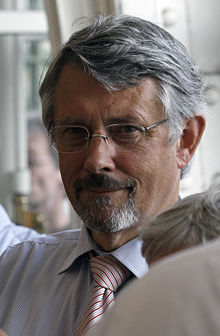
Politics in Austria reflects the dynamics of competition among multiple political parties, which led to the formation of a Conservative-Green coalition government for the first time in January 2020, following the snap elections of 29 September 2019, and the election of a former Green Party leader to the presidency in 2016.

The Liberal Forum was a centrist, liberal political party in Austria. The party was active from February 1993 to January 2014, when the party merged into NEOS – The New Austria.
This article gives an overview of liberalism in Austria. It is limited to liberal parties with substantial support, mainly proved by having had representation in parliament. For inclusion in this scheme it is not necessary that parties labeled themselves as a liberal party.

The Alliance for the Future of Austria is a right-wing populist, national conservative political party in Austria.
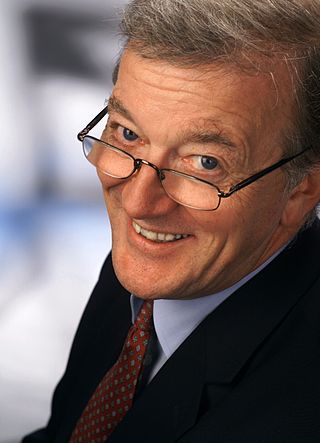
Caspar Einem was an Austrian politician and minister (SPÖ). He served as a board member of Jetalliance.

Heide Schmidt is an Austrian politician.

Friedrich Peter was an Austrian politician who served as chairman of the Freedom Party of Austria from 1958 to 1978. He was an active Nazi between 1938 and 1945 and an SS-Obersturmführer of the Waffen-SS.

Legislative elections were held in Austria on 1 October 2006 to elect the 23rd National Council, the lower house of Austria's bicameral parliament.

European elections were held in Austria on 13 October 1996 to elect the 21 Austrian members of the European Parliament.
An election was held in 2009 to elect the delegation from Austria to the European Parliament. Austria will have 17 seats in the European Parliament, instead of the 18 that the country had before the re-allocation of seats.

Legislative elections were held in Austria on 28 September 2008 to elect the 24th National Council, the lower house of Austria's bicameral parliament. The snap election was called after Austrian People's Party (ÖVP) withdrew from the ruling grand coalition with the Social Democratic Party of Austria (SPÖ) in July. Due to dissatisfaction with the governing parties, the opposition and minor parties were expected to make significant gains. Opinion polling indicated that up to seven parties could potentially win seats.

The Freedom Party of Austria is a political party in Austria, variously described as far-right, right-wing populist, national-conservative, eurosceptic and russophile. It has been led by Herbert Kickl since 2021. It is the largest of five parties in the National Council, with 58 of the 183 seats, and won 29.21% of votes cast in the 2024 election and it is represented in all nine state legislatures. On a European level, the FPÖ is a founding member of the Patriots.eu and its six MEPs sit with the Patriots for Europe (PfE) group following the dissolution of its predecessor, Identity and Democracy (ID).

The 2010 Viennese state election was held on 10 October 2010 to elect the members of the Gemeinderat and Landtag of Vienna.

JUNOS – Young liberal NEOS is the youth wing of Austrian liberal NEOS party, and a full member of liberal youth organizations International Federation of Liberal Youth and European Liberal Youth.
A legislative snap election for the National Council in Austria was held on 28 September 2008. The previous election was held on 1 October 2006. The election was caused by the withdrawal of Austrian People's Party leader Wilhelm Molterer from the governing grand coalition on 7 July 2008. Due to dissatisfaction with the grand coalition and the two main parties, it was widely expected to be a realigning election, with gains for the opposition and up to seven parties expected to be in the National Council after the election. The losses for the government parties resulted in strong gains for the far right, while neither the Liberal Forum nor the Citizens' Forum Austria gained as much as 2% of the vote, defying earlier expectations. The result of the election was seen as strong for the far-right and in support of Eurosceptics.

NEOS – The New Austria and Liberal Forum is a liberal political party in Austria. It was founded as NEOS – The New Austria in 2012. In 2014, NEOS merged with Liberal Forum and adopted its current name.
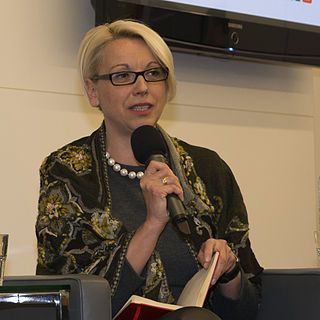
Angelika Rosa Mlinar is an Austrian and Slovenian politician who served as Member of the European Parliament (MEP) from 2014 until 2019. She is a member of NEOS – The New Austria, part of the Alliance of Liberals and Democrats for Europe. She belongs to the minority of Carinthian Slovenes. She is a distinguished fellow of the European Institute for International Law and International Relations.
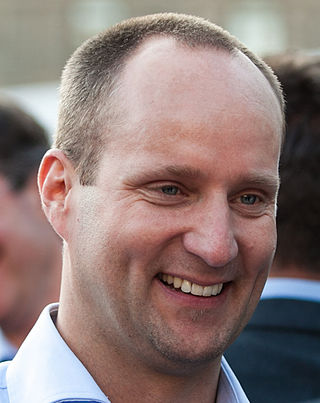
Matthias Strolz (German:[maˈtiːasʃtʁolt͡s]; born 10 June 1973) is an Austrian politician. He is the founder of the political party NEOS – The New Austria and Liberal Forum and was its first leader and a member of Austria's National Council from 29 October 2013 until 26 September 2018.

Mario Kunasek is an Austrian politician and noncommissioned officer, who was the Minister of Defense from December 2017 to May 2019.
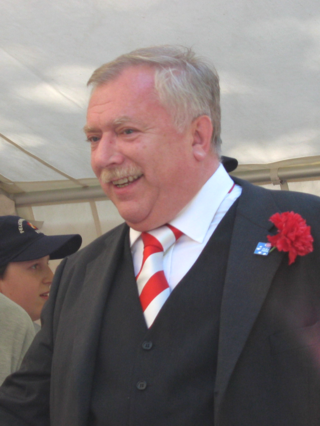
The 2001 Viennese state election was held on 25 March 2001 to elect the members of the Gemeinderat and Landtag of Vienna.
